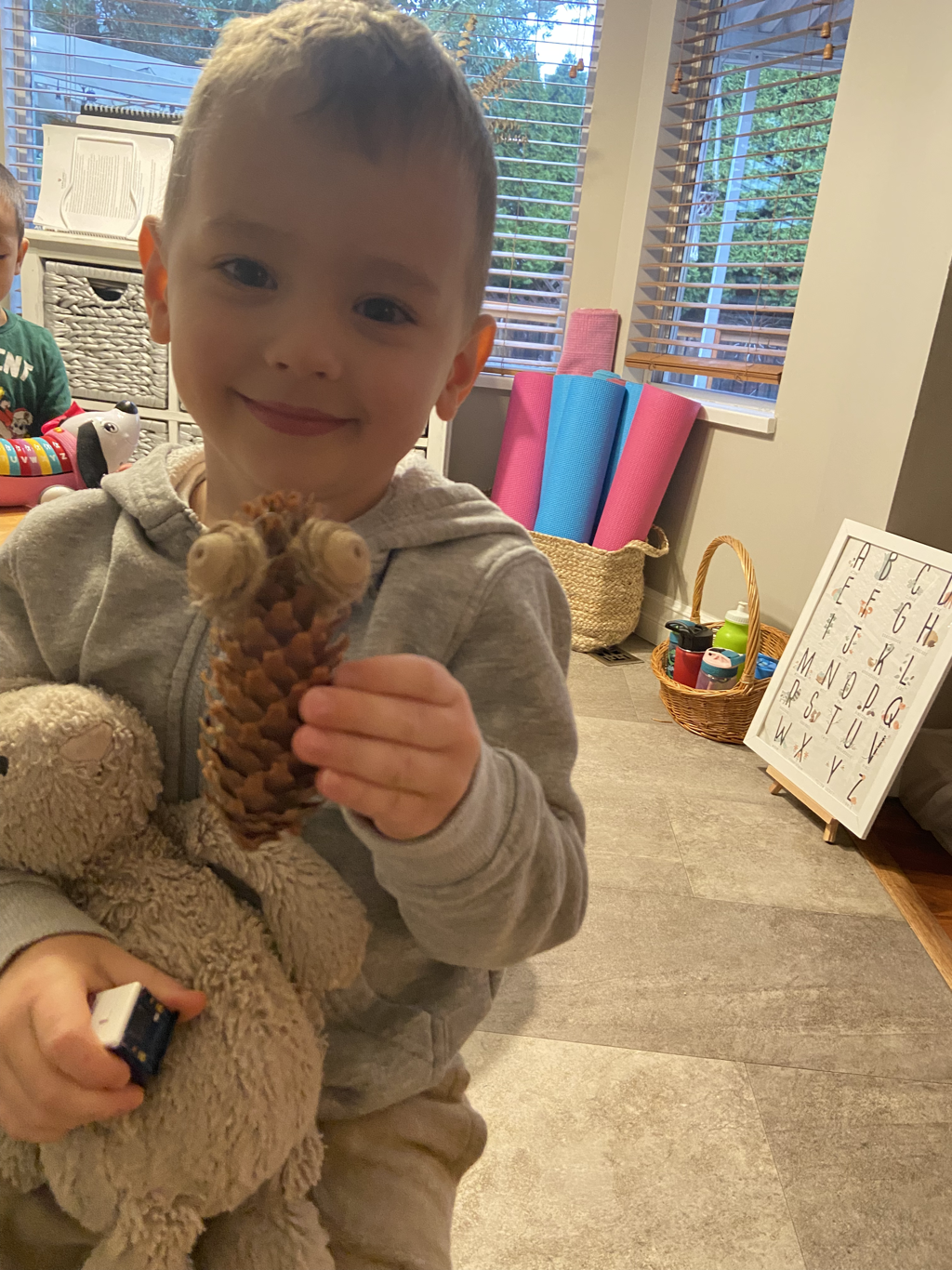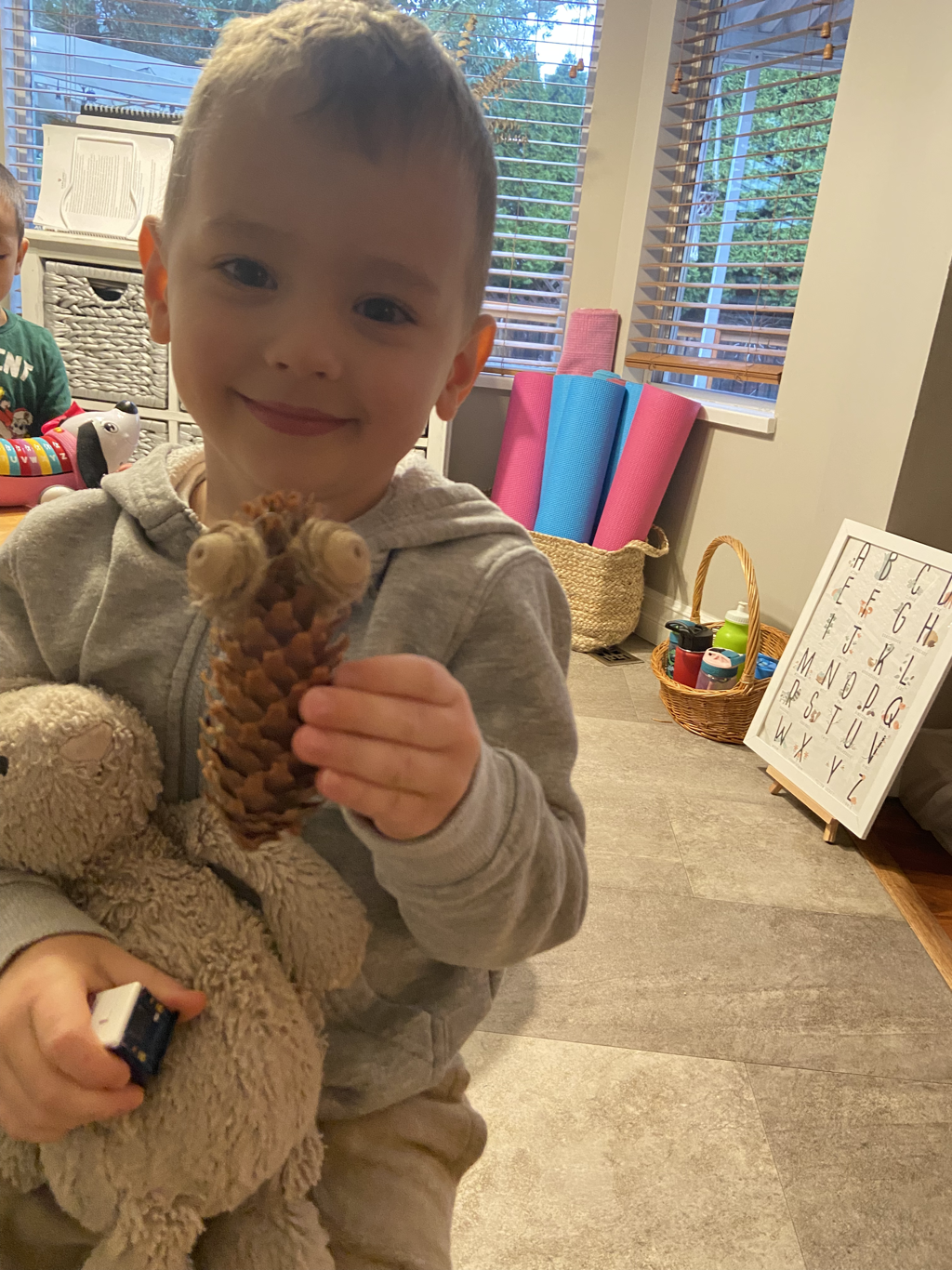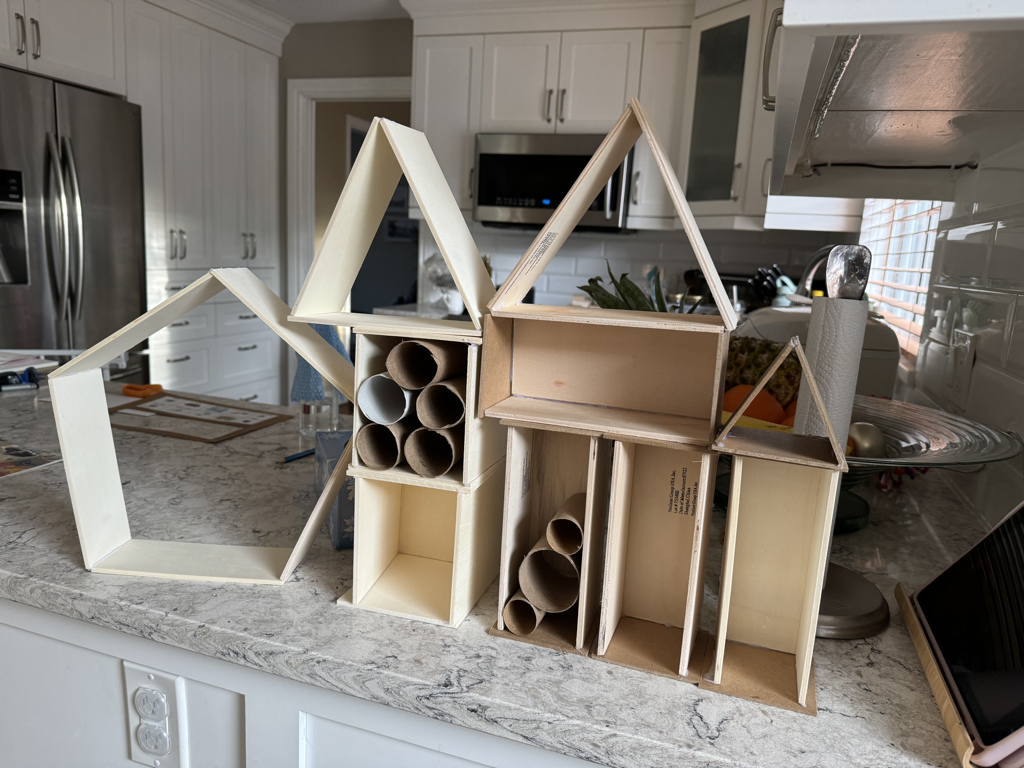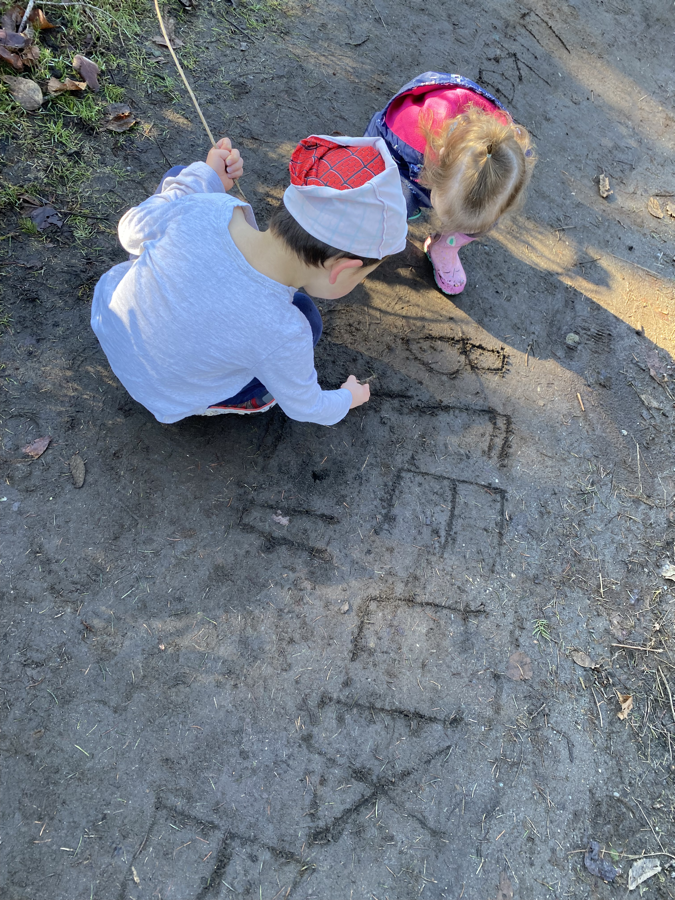|
Through music Nora expresses her interests in exploring sounds and the meanings of words. We love to dance and move to music. We include producing rhythms by clapping or tapping objects during our group time. Dancing to music helps us build motor skills while allowing us to practice self-expression. We like songs that repeat words and melodies, use rhythms with definite beat, and follow directions. Music explores beat through movement, clapping, scarves, simple instruments such as rhythm sticks, bells, and drums. A 2016 study at the University of Southern California's Brain and Creativity Institute found that musical experiences in early childhood can actually accelerate brain development, particularly in the areas of language acquisition and reading skills. Music, surprisingly, has been linked to stronger reading comprehension skills. Several studies have shown that the rhythms in music are basically the same as those in speech and language. Thus, learning in music helps us further improve our reading comprehension skills.
We learn through a fun and engaging interaction to decipher words on pages. We need to know the different sounds in spoken language and be able to connect those sounds to written letters in order to decipher words. When we understand letter sounds, we will begin to form the words. Blending sounds to read words is the process of translating letters to sounds ... and then combining, or blending, those sounds to identify a written word. Blending simply requires practices. Learning how to orally blend to create a spoken word and how to break a word apart is how to enjoy our journeys of blending and segmenting. These blending learning experiences engage us to work together in our spirit of teamwork, The beauty of working together inspires us to taking turns while maintaining conversations with others. Friendships that develop encourage us to understand reciprocity by sharing resources, spaces, and time. Sharing our rides and laughter with friends help us learn the pattern of 'give and take'. This creates a feeling of mutual trust and assistance as we see our friends as people who help each other and whom we can count on whenever we need help. Peer relationships are unique because they are voluntary, equal, and require negotiation and compromise. Play with peers allows us to regulate our emotions, develop social skills and form a sense of identity. We would like to express our grateful thanks to our fathers who are always there for us. It is not easy to find words to describe your patience, caring heart, and endless love. Happy Father's Day to all fathers!
Kindest, Children & Friends.
0 Comments
Leave a Reply. |
No part of this publication may be reproduced, distributed, or transmitted in any form or by any means, including photocopying, recording or any other electronic or mechanical methods, without the prior written permission of the publisher.
Archives
July 2024
|



